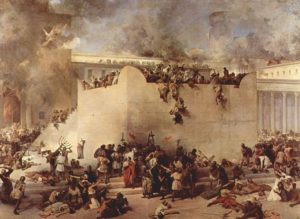What is the true meaning of the ancient and little-known Biblical holiday of Tu b’Av? Where did Tu b’Av come from and what does it have to do with Creation? Finally, how does Tu b’Av rectify the problem of Tisha b’Av, the saddest day of the Jewish year?
Also discussed is the Jewish view of soulmates, the three types of love, the purpose of the Book of Judges (Shoftim), and a deeper look at the lives of Kings David and Solomon.

